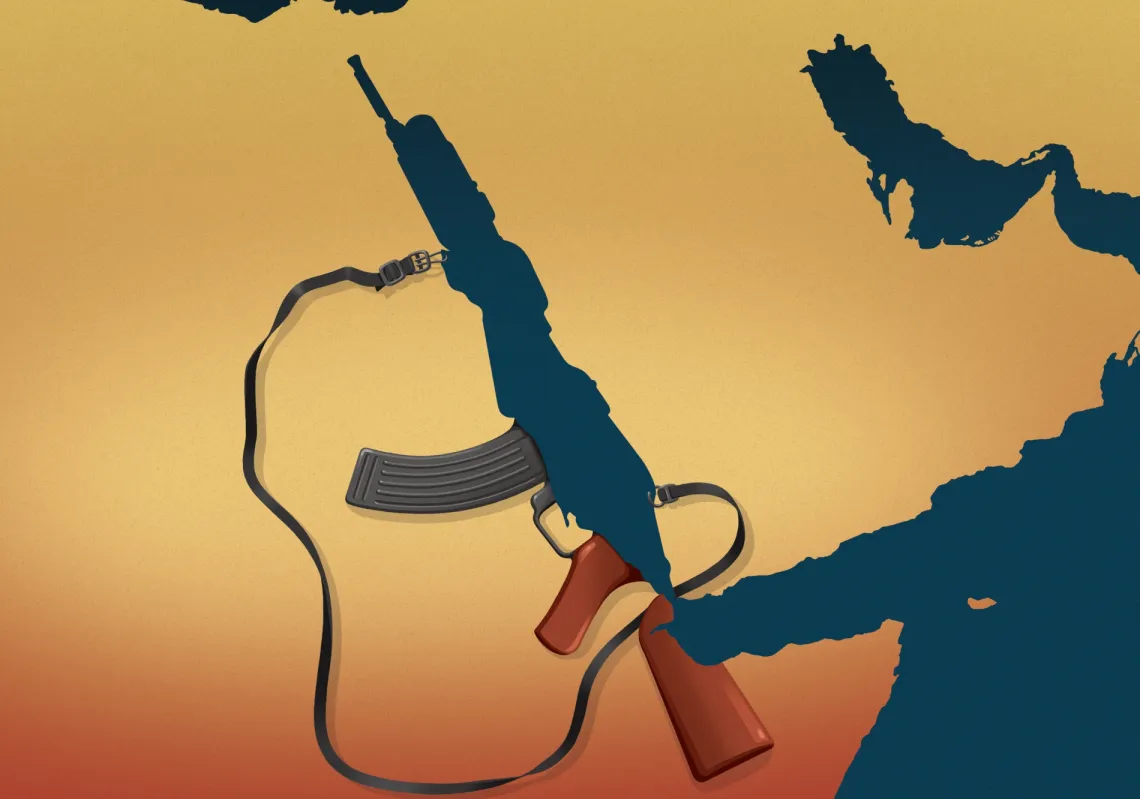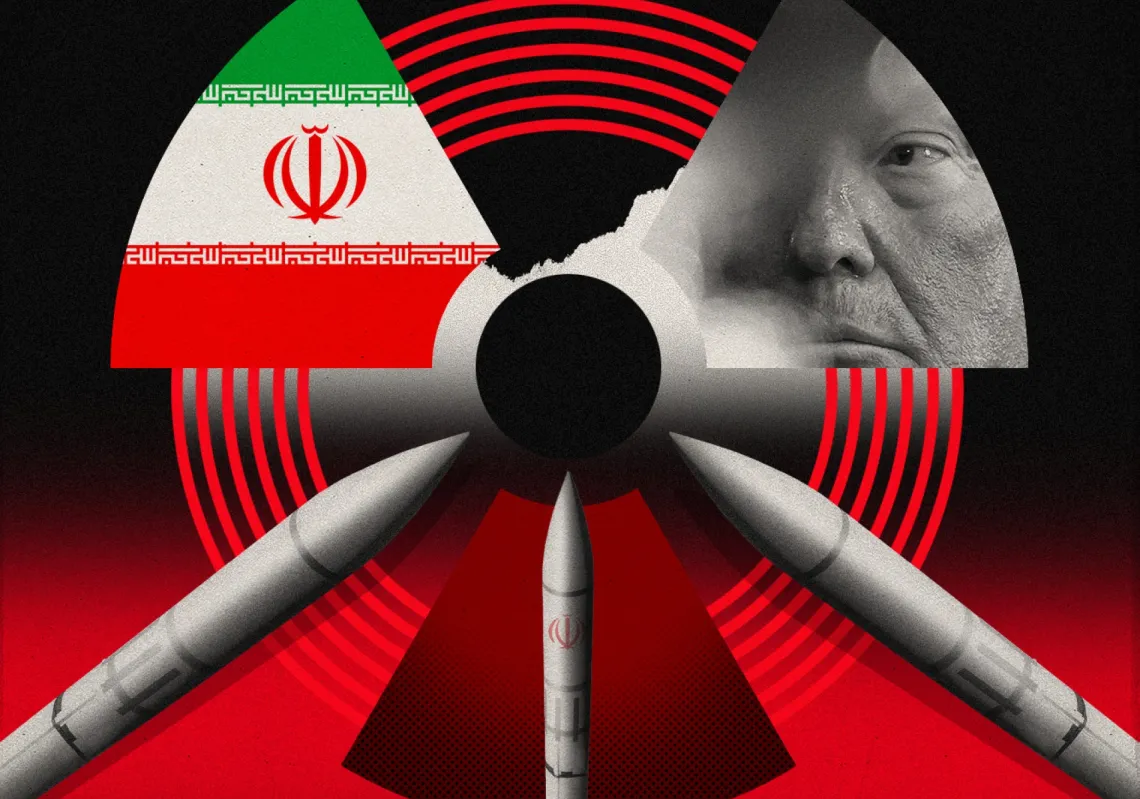A March 26 train collision near the central province of Sohag was a grim reminder of Egypt's responsibility to act urgently to save lives and prevent the nation's railways from becoming death traps for ordinary people, specialists said.
A passenger train was travelling from the southern ancient city of Luxor to the northern coastal city of Alexandria on the Mediterranean on Friday, when it suddenly screeched to a halt.
The Ministry of Transport said the train stopped because some unknown passengers pulled the emergency brake.
A few minutes later, however, a speeding train on the same line rammed into the train that had just stopped, destroying about three carriages at the end of the train and killing 19 passengers.
Around 185 other passengers were injured, the Ministry of Health and Population said.
It added that aid responders dealing with the accident had brought to the hospital three bags full of human remains, which means that the number of dead victims could be higher.
"The railways are in urgent in need of upgrade," independent railway transport expert Hamdi Barghout told Majalla. "In their current condition, the trains pose danger to the lives of the passengers."
Only the latest
Friday's crash was the latest in a long series of railway accidents that claimed the lives of hundreds of Egyptians over the years and invited attention to the dangerous nature of using the trains in this populous country.
Egypt's railways, the oldest and the longest in Africa, have already become an imperilment for millions of ordinary people using the trains in travelling between different parts in this country.
The national railways network, which is operated by the Egyptian government, covers 10,000 kilometers.
Human element
However, so much blood has been spilt on these rails over the years, turning them into a pain in the head for successive governments.
"The operation conditions of the trains are becoming so difficult with their upgrade not having come to an end so far," Hassan al-Mahdi, a professor of railway engineering at Ain Shams University, told Majalla. "Most of the accidents have human faults behind them and this adds a new dimension to the railway crisis."
A staggering 12,000 accidents happened on the nation's railways between 2006 and 2016, according to the Central Agency for Public Mobilization and Statistics, the official Egyptian statistics body.
Most of the accidents that took place in the past years were blamed on recklessness by the drivers.
Deplorable conditions
A deep study of the conditions of the Egyptian railway network can show that the problems this network suffers from are far bigger than reckless driving by a bunch of uncaring or untrained drives and workers, specialists said.
The trains are antiquated, the operation systems of the railways are outdated and safety standards are almost non-existent in the operations of the railways, the same specialists added.
"We are badly in need of raising the safety standards in the operation of the trains to avoid accidents and fatalities," Barghout said.
Following Friday's accident, Egyptian President Abdel Fattah al-Sisi called for the "radical modernization" of the nation's trains, including by raising safety standards for the passengers.
The Egyptian president also ordered an investigation into the accident, vowing to bring those responsible for it to account.
Upgrade
Egypt started an upgrade of the railways in 2018, to which it allocated $14.5 billion.
Minister of Transport Kamel al-Wazir, who took over the transport portfolio in 2017 following a train accident at the central train station in downtown Cairo that killed 22 people, said the upgrade would be completed by 2024.
"This upgrade will be the only way for the railway accidents to be prevented," the minister said at a press briefing on March 27.
He said the first phase of the upgrade had already been completed and it included the modernization of train carriages and locomotives, the upgrade of train signals and the overhaul of train stations and crossing points.
The upgrade of the railway network has also included the purchase of hundreds of new train carriages.
However, the minister did not rule out the possibility of accidents in the coming period until the upgrade comes to an end.
"There will be accidents so long as the trains are operating while the upgrade is being done," Minister al-Wazir said.
Awkward situation
In a way, specialists said, this throws light on Egypt's dilemma at present.
To conduct a comprehensive overhaul of the railways – supposing the needed funds are available – Egypt needs to suspend the trains.
"The authorities cannot stop the operation of the trains to conduct the upgrade," al-Mahdi said. "If they do this, hundreds of thousands of people will not find transport to and from their work every day."
According to the Transport Ministry, around 1 million Egyptians use the trains to travel between different parts of Egypt every day.
Nonetheless, the continued operation of the trains means that some more accidents can happen in the coming period and some more lives can be lost until the modernization is completed, specialists said.
Lack of safety
This is especially true in the absence of proper safety standards in the operation of the trains, the same specialists added.
The automatic control system of the trains has reportedly been suspended since 2017 because of repeated objections by the passengers against delays in the arrival of the trains to the stations across the network.
The Ministry of Transport decided to re-operate the system, following Friday's collision.
"The authorities are doing their best to reform the network and protect the passengers, but most of the accidents are caused by human faults and the conduct of some of the passengers," Mahmud al-Dabaa, a member of the parliamentary committee on transport, told Majalla. "Mistakes and recklessness should never be tolerated."









